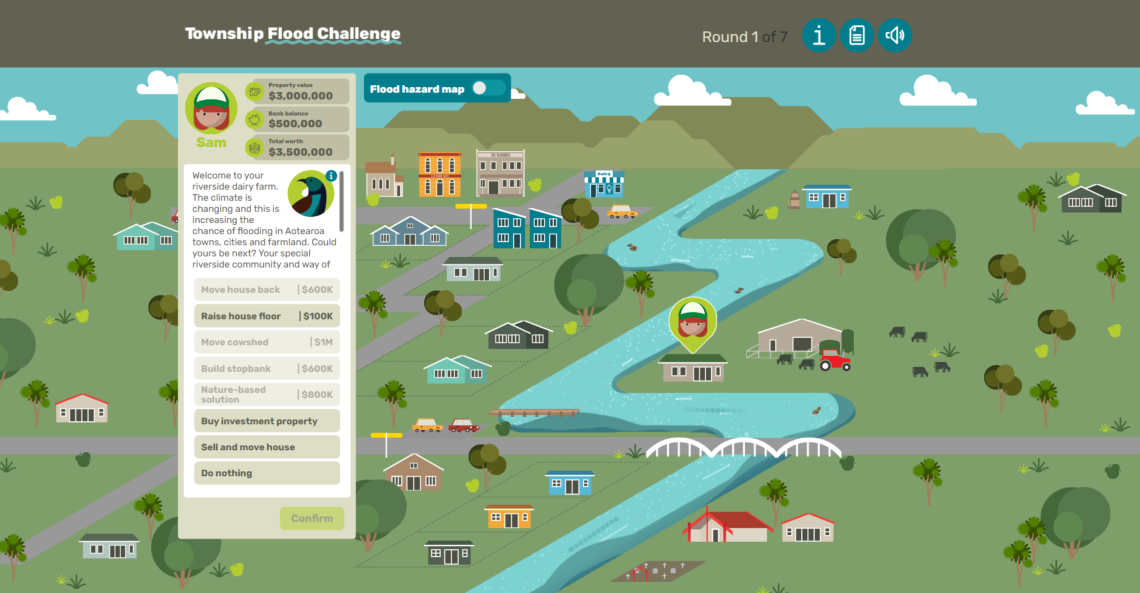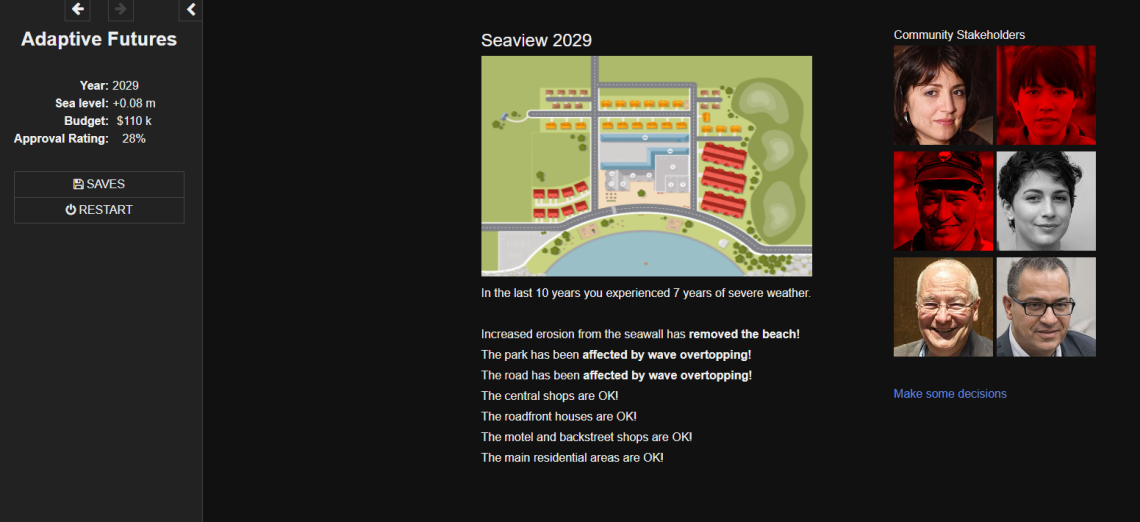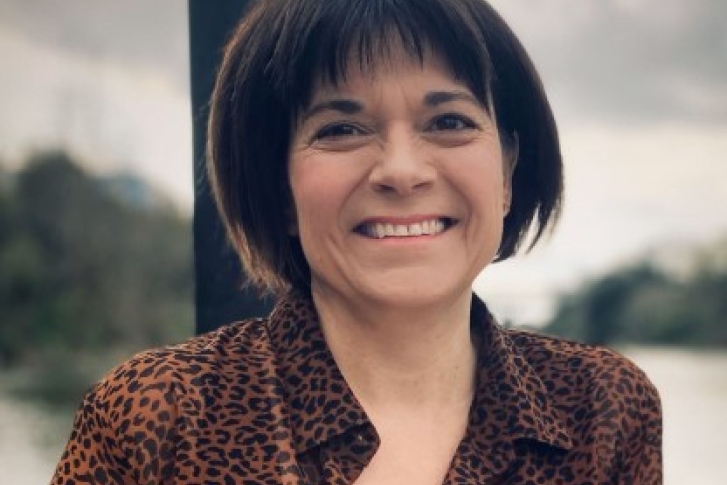Serious games support climate change understanding and decision-making
Climate change effects are accelerating, as is the need for appropriate actions. We know that by making sound choices now and in the future, we can foster climate resilience and reduce risks and costs for future generations and ourselves.
If we are to build a more resilient, better prepared New Zealand we need to make decisions informed by good knowledge and science. This is a major challenge, given the highly complex and urgent nature of many of our current environmental issues.
Our traditional approach to climate change adaptation requires decision-makers and communities to understand and combine information sources themselves to make their own decisions. This is very difficult to do, especially given the highly complex and urgent nature of many of our current environmental issues. Often the complexity can be bewildering and paralysing, meaning that institutions, businesses and people simply don’t grasp the implications of the trade-off and choices available.
NIWA is using serious games to look at problems holistically, support understanding and give a framework for climate change adaptation decision-making.
“We learn many things when we play games such as rules, strategies, trade-offs, rapid decision-making and managing finances. We do this learning within a ‘safe’ environment where we can try different strategies, take risks and resolve conflicts.”
Paula Blackett, NIWA Environmental Social Scientist
The science that underpins the games
Designing serious games requires an integrated understanding of the biophysical science (climate science, hydrology etc), human behaviour, decision-making, values, economic costs and implications of each decision. All these bits of knowledge are combined carefully to develop realistic storylines that capture the critical choices and decisions and credibly portray the outcomes of different choices.
The game is based on the principles of adaptation pathways, a strategic planning approach that:
- allows for uncertainty and change
- encourages us to imagine multiple futures
- takes into account what is important to individuals and communities
- helps us to consider the many different options in front of us, how long these might be effective for and to understand when we might need to change tack.

NIWA serious games
NIWA has been developing serious games since 2017 in different formats and complexities, on different themes and for different audiences. These include:
My Coastal Futures single player online game
My Coastal Futures was developed by NIWA, alongside Hum Interactive and Geo AR Games, to help people understand climate change impacts and start thinking about how they might adapt. It provides players with the experience of making decisions about their coastal property as the sea level rises.

Township Flood Challenge multiplayer online game
Township Flood Challenge is an online climate change and extreme weather adaptation game that is accompanied by teaching resources for teachers. It includes exploration of climate change, adaptation choices, wellbeing, values and decision making.
Climate change adaptation challenge: On-farm flooding and sea level rise versions
These are physical games that take 5-10 minutes to play and help players find a pathway through 50 years of climate change. Players interactively explore possible pathways to:
- changing flood exposure on a farm
- changing sea-level exposure in a seaside residence.
Each game is supported by a printed workbook and can be played by anyone, with no special expertise required, either as individuals or in small groups.
In the below video, you can watch our Climate change adaptation challenge: On-farm flooding in action at Fieldays in 2018.
Future Coasts Aotearoa online game
Climate change adaptation planning needs to understand what drives people's behaviour – but it is difficult to get good data, and there are limited sources of knowledge. NIWA has developed an adaptation simulation game created to discover people’s behaviours and preferences on sea-level rise adaptation.
Future Coasts Aotearoa is set in a typical coastal community in New Zealand. The small town, local farms and marae are at risk of flooding, storm surges, sea and groundwater rising, and these risks are increasing with climate change – meaning more frequency and severity. You have choices available to you that can be applied in the real world, and you will learn the different pathways you can take to experience living with changing risk.

For the optimal game experience, play the game on tablets, laptops and desktop computers (it is not mobile enabled). The game is best for people over sixteen years of age, however younger children can play with guidance.
Interactive coastal futures
Adaptive Futures is an online coastal adaptation game that takes around 30 minutes to play. The player is a decision maker in a coastal community affected by sea level rise. Choices on how to proceed are informed by finances and the demands of in-game characters.
Bespoke serious games
NIWA can work with your organisation to develop a bespoke game to help you engage with your community, partners or stakeholders around a particular issue. We have options of different formats, complexities and lengths of game and can provide training or run the game for you. Please get in touch using the contacts below to find out more.



